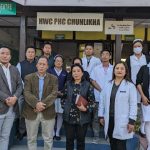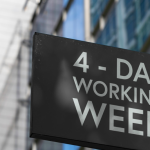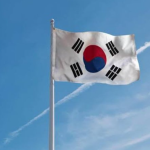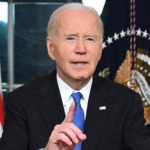
Doctors’ Indefinite Strike Disrupts Healthcare Services in South Korea
South Korea doctors have come out in the balloting to express their disagreement with the government over its capacity to add more admission slots in medical schools. The government has plans to produce more doctors in the country, but the doctors are now opposing this move as they believe that the number of medical colleges and resulting doctors will hurt their quality.
Doctors Rally Against Healthcare Plan
Out of all the medical doctors in the world, the medical doctors in South Korea are protesting rather than helping others. They are having sit-in demonstrations with Candle to express their feelings on the government’s new policy that seeks to alter the country’s health care system. Doctors argue that the outlined plan will serve as a recipe for more woes than amenities. Some of them believe that the government lacks adequate commitment to the well-being of the nation than it does to politics.
The incumbent President of Gyeonggi-do Medical Association, Lee Dong-wook stated, “President Yoon Seok-yeol is going to be criticized as a failed president for calling the doctors, residents as well as the medical student’s criminals, besides getting those disastrous policies passed”.
Doctors’ Strike Escalates
For more than four months now, over 12,000 trainee doctors have been on strike to protest the government’s ambitions to expand medical school enrollment by up to 10,000 by the year 2035. This particular conflict of interest has been escalating, as many doctors have been `coming out’ to strike.
Around 1,360 clinics out of some 36,000 PRIVATE medical establishments implemented a one-day walk-out on Tuesday. Furthermore, hundreds of professors in the medical schools of Seoul National University, which is at four major hospitals, went on an indefinite strike starting this week, with apprehensions being raised that it may lead to a potential disruption of medical services.
The leader of the Korean Medical Association (KMA) with a membership of over 100,000 members, has threatened to lobby for an indefinite strike from June 27 by all the members if the government fails to cancel the proposal on the expansion of enrollment in medical colleges.
Government’s Response
To pressure doctors into returning to work, the South Korean government has now ordered doctors involved in the strike to return to work. One of the state officials involved in the conflict was the Deputy Health Minister, Jun Byung-wang, who said that the protesting doctors were undermining the doctor-patient relationship.
He said that doctors are in a privileged position since there is a cartel for doctors and no competition is allowed then doctors are called upon to exercise their professional responsibilities and be ethical. New measures triggered an uproar about how the government threatened to shake doctors who failed to adhere to the return-to-work ultimatums with loss of licenses or other penalties.
To this end, the government aims to ask hospitals to file damages suits against striking medical professors if their shutdown escalates and impacts the delivery of medical services. The new ways that may turn into disadvantages to the hospitals that fail to adequately respond to this walkout include elements of health insurance compensation The law also provides that any hospital that cancels reserved treatments and fails to provide due notice to patients shall be sued.
South Korea is a shortage of doctors.
The number of doctors has been a limitation for South Korea where there is normally a smaller number of doctors compared to developed countries. Because of this, the government has proposed to expand the admission quotas for medical schools to help erase this doctor deficit and to augment the necessary personnel in delivering health care services for the public.
Impact on Public Health
The continuous strike by doctors and the protest they staged has left many people worried about future interruption in the provision of medical services especially with the current wave of the coronavirus pandemic which requires a lot of medical attention. This scenario may escalate more so with the ongoing stand between the government and doctors, thus patients and the general public may experience challenges in getting quality and timely medical services.
The doctors currently require a satisfactory quality of education and services within the country so that the public can also guarantee adequate healthcare standards to cater to the entire population.
Keep Reading










